#geoffrey household
Quote
The poets are wrong when they describe the grave as cold.
Rogue Male, Geoffrey Household
73 notes
·
View notes
Text

Rogue Male (Geoffrey Household)
"A bored, upper-class British sportsman is found on the grounds of an unnamed European dictator's residence with his hunting rifle in hand, and subsequently arrested. His claim, maintained under torture, that he was stalking the dictator purely as an exercise in the skill of the hunt and that he had no intention of firing is so audacious that it is almost believed — but nonetheless he cannot be allowed to live. To execute such a well-connected Briton would cause an international incident, so his captors decide to kill him by throwing him over a cliff so that his body will show injuries consistent with accidental death. Though badly injured he survives and manages to make his way to the Channel and from there back to England. There he discovers that home does not mean safety, nor an end to the pursuit."
And Then There Were None (Agatha Christie)
"Ten people, trapped on an island, all of them murderers who escaped justice. They are slowly picked off one by one as judgement for their crimes, causing them to search desperately for the killer before turning on one another, evoking themes of paranoia and betrayal akin to MAG 176: Blood Ties. (Spoilers below the cut)"
Spoilers: The killer was the judge, who had gone into law enforcement to sate his desire for killing and punishment, much like Daisy Tonner did
#hunt poll#the hunt#poll#the magnus archives#leitner tournament#Rogue Male#Geoffrey Household#And Then There Were None#Agatha Christie
3 notes
·
View notes
Photo

Wanderstilleben
Zeiss Ikonta 520/2, Novar-Anastigmat, Ilford HP5+
#Zeiss#Ikonta#520/2#Novar#Ilford#HP5#Wandersteilleben#still life#hiking#Waldviertler#rucksack#cup of tea#enamel mug#folding camera#book#geoffrey household#Rogue Male#small path#wood anemones#tea break#spring#outdoors#analog#medium format#6x9
17 notes
·
View notes
Text
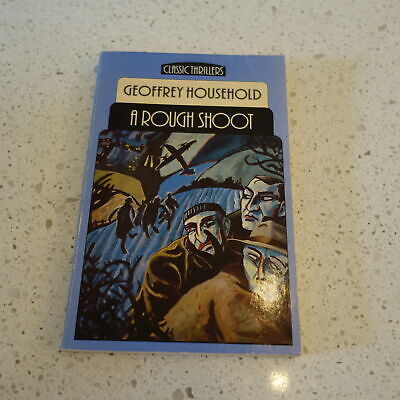
Geoffrey Household A ROUGH SHOOT 1984 Vtg Geoffrey Household Vtg Mystery
#bluemelodybooks#vintagebook#vintagebooks#booklover#oldbooks#bookart#bookseller#80s book#80s mystery#mystery book#80s novel#reading#reading community#geoffrey household#vintage mystery
0 notes
Photo
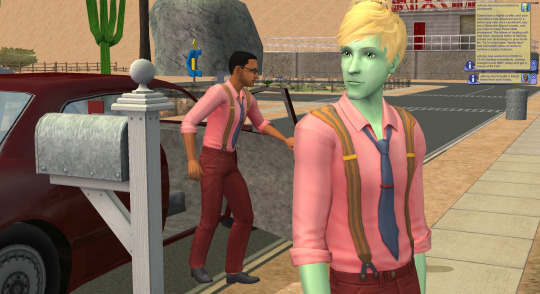


Johnny brings a friend home, and Klara Vonderstein passes by and gets invited in. It’s funny, I kept meaning to have them invite Jenny over but they were always entertaining already so it was hard to fit in.
Life can be like that sometimes, though! You get so distracted by work, home responsibilites and having a social life it can be tough to keep up with it all. As a popularity/family sim, I think Johnny struggles a little.
#Pleasantview Plus#Hood: Strangetown#Household: Nigmos#PP: Ophelia Nigmos#PP: Klara Vonderstein#PP: Geoffrey Custer#PP: Johnny Smith
19 notes
·
View notes
Text
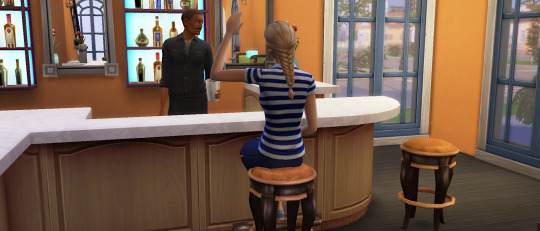


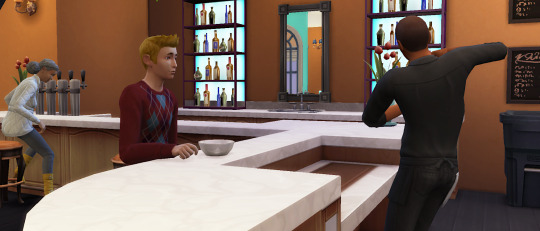
After work the group of friends meets at the bar on the other side of the street.
#the sims 4#the sims 4 rotation#bff household#travis scott#summer holiday#geoffrey landgraab#year 1 spring week 1#y1spw1
3 notes
·
View notes
Photo

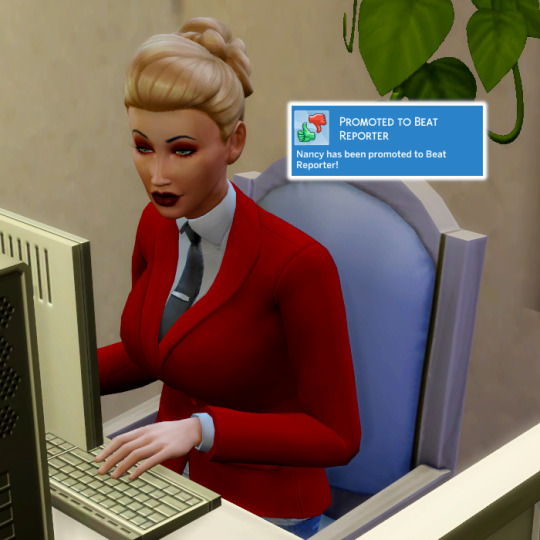



It seems it's a day of achievements.
#perfect time to switch household#need a break from high school#ts4#ts4 gameplay#landgraabs#Charles Landgraab#Geoffrey Landgraab#nancy landgraab
8 notes
·
View notes
Text
Oasis Springs, Landgraab Round One
Malcolm fought (verbally) with Rahul Chopra quite a bit. And he's friends with Kiyoshi Ito, whom he invited home twice
Nancy worked hard to get a promotion but she's not quite there yet
Geoffrey wanted a child and then he and Nancy tried for a baby with Nancy, who immediately got pregnant, then they got a baby boy they named Aidan
Aidan grew up to an infant with the trait wiggly, it turned out he also has the quirks "gassy", "hates wakeup time" and "frequently hiccups"
#rotational gameplay#round 1#simblr#sims 4#sims 4 gameplay#sims 4 rotational play#the sims 4#oasis springs#the landgraab household#nancy landgraab#geoffrey landgraab#malcolm landgraab#aidan landgraab
1 note
·
View note
Text
How monopoly enshittified Amazon

In Bezos’s original plan, the company called “Amazon” was called “Relentless,” due to its ambition to be “Earth’s most customer-centric company.” Today, Amazon is an enshittified endless scroll of paid results, where winning depends on ad budgets, not quality.
Writing in Jeff Bezos’s newspaper The Washington Post, veteran tech reporter Geoffrey Fowler reports on the state of his boss’s “relentless” commitment to customer service. The state is grim.
https://www.washingtonpost.com/technology/interactive/2022/amazon-shopping-ads/
Search Amazon for “cat beds” and the entire first screen is ads. One of them is an ad for a dog carrier, which Amazon itself manufactures and sells, competing with the other sellers who bought that placement.
Scroll down one screen and you get some “organic” results — that is, results that represent Amazon’s best guess at the best products for your query. Scroll once more and yup, another entire screen of ads, these ones labeled “Highly rated.” One more scroll, and another screenful of ads, one for a dog product.
Keep scrolling, you’ll keep seeing ads, including ads you’ve already scrolled past. “On these first five screens, more than 50 percent of the space was dedicated to ads and Amazon touting its own products.” Amazon is a cesspit of ads: twice as many as Target, four times as many as Walmart.
How did we get here? We always knew that Amazon didn’t care about its suppliers, but being an Amazon customer has historically been a great deal — lots of selection, low prices, and a generous returns policy. How could “Earth’s most customer-centric” company become such a bad place to shop?
The answer is in Amazon’s $31b “ad” business. Amazon touts this widely, and analysts repeat it without any critical interrogation, proclaiming that Amazon is catching up with the Googbook ad-tech duopoly. But nearly all of that “ad” business isn’t ads at all — it’s payola.
https://pluralistic.net/2022/02/27/not-an-ad/#shakedowns
Amazon charges its sellers billions of dollars a year through a gladiatorial combat where they compete to outspend each other to see who’ll get to the top of the search results. May the most margin-immolating, deep-pocketed spender win!
Why would sellers be willing to light billions of dollars on fire to get to the top of the Amazon search results?
Prime.
Most of us have Amazon Prime. Seriously — 82% of American households! Prime users only shop on Amazon. Seriously. More than 90% of Prime members start their search on Amazon, and if they find what they’re looking for, they stop there, too.
If you are a seller, you have to be on Amazon, otherwise no one will find your stuff and that means they won’t buy it. This is called a monopsony, the obscure inverse of monopoly, where a buyer has power over sellers.
But monopoly and monopsony are closely related phenomena. Monopsonies use control over buyers — the fact that we all have Prime — to exert control over sellers. This lets them force unfavorable terms onto sellers, like deeper discounts. In theory, this is good for use consumers, because prices go down. In practice, though…
Back in June 2021, DC Attorney General Karl Racine filed an antitrust suit against Amazon, because the company had used its monopoly over customers to force such unfavorable terms on sellers that prices were being driven up everywhere, not just on Amazon:
https://pluralistic.net/2021/06/01/you-are-here/#prime-facie
Here’s how that works: one of the unfavorable terms Amazon forces on sellers is “most favored nation” status (MFN), which means that Amazon sellers have to offer their lowest price on Amazon — they can’t sell more cheaply anywhere else.
Then Amazon hits sellers with fees. Lots of fees:
Fees to be listed on Prime (without which, your search result is buried at the bottom of an endless scroll):
Fees for Amazon warehouse fulfillment (without which, your search result is buried at the bottom of an endless scroll)
And finally, there’s payola — the “ads” you have to buy to outcompete the other people who are buying ads to outcompete you.
All told, these fees add up to 45% of the price you pay Amazon — sometimes more. Companies just don’t have 45% margins, because they exist in competitive markets. If I’m selling a bottle of detergent at a 45% markup, my rival will sell it at 40%, and then I have to drop to 35%, and so on.
But everyone has to sell on Amazon, and Amazon takes their 45% cut, which means that all these sellers have to raise prices. And, thanks to MFN, the sellers then have to charge the same price at Walmart, Target, and your local mom-and-pop shop.
Amazon’s monopoly (control over buyers) gives it a monopsony (control over sellers), which lets it raise prices everywhere, at Amazon and at every other retailer, even as it drives the companies that supply it into bankruptcy.
Amazon is no longer a place where a scrappy independent seller can find an audience for its products. In order to navigate the minefield Amazon lays for its sellers (who have no choice but to sell there), these indie companies are forced to sell out to gators (aggregators), which are now multi-billion-dollar businesses in their own right:
https://pluralistic.net/2022/02/10/monopoly-begets-monopoly/#gator-ade
This brings me back to the enshittification of Amazon search, AKA late-stage (platform) capitalism. Amazon’s dominance means that many products are now solely available on the platform. With the collapse of both physical and online retail, Prime isn’t so much a choice as a necessity.
Amazon has produced a planned economy run as capriciously as a Soviet smelting plant, but Party Secretary Bezos doesn’t even pretend to be a servant of the people. From his lordly seat aboard his penis-rocket, Bezos decides which products live and which ones die.
Remember that one of those search-results for a cat-bed was a product for dogs? Remember that Amazon made that dog product? How did that end up there? Well, if you’re a seller trying to make a living from cat-beds, your ad-spending is limited by your profit margin. Guess how much it costs Amazon to advertise on Amazon? Amazon is playing with its own chips, and it can always outbid the other players at the table.
Those Amazon own-brand products? They didn’t come out of a vacuum. Amazon monitors its own sellers’ performance, and creams off the best of them, cloning them and then putting its knockoffs above of the original product in search results (Bezos lied to Congress about this, then admitted it was true):
https://nypost.com/2021/10/18/jeff-bezos-may-have-lied-to-congress-about-amazon-practices-reps/
If you’ve read Chokepoint Capitalism, Rebecca Giblin’s and my new book about market concentration in the entertainment industry, this story will be a familiar one. You’ll recall that Amazon actually boasts about this process, calling it “the flywheel”:
https://twitter.com/rgibli/status/1561761732108107777
Everything that Amazon is doing to platform sellers, other platforms are doing to creators. You know how Amazon knocks off its sellers’ best products and then replaces them with its clones? That’s exactly what Spotify does to the ambient artists in its most popular playlists, replacing them with work-for-hire soundalikes who aren’t entitled to royalties.
You can learn more about how Spotify rips off its performers in the Chokepoint Capitalism chapter on Spotify; we made the audiobook version of that chapter a Spotify exclusive (it’s the only part of the book you can get on Spotify):
https://pluralistic.net/2022/09/12/streaming-doesnt-pay/#stunt-publishing
Entertainment and tech companies all want to be the only game in town for their creative labor force, because that lets them turn the screws to those workers, moving value from labor to shareholders.
Amazon is also the poster-child for this dynamic. For example, its Audible audiobook monopoly means that audiobook creators must sell on Audible, even though the #AudibleGate scandal revealed that the company has stolen hundreds of millions of dollars from these creators. (Our chapter on Audiblegate is the only part of our audiobook on Audible!)
https://pluralistic.net/2022/09/07/audible-exclusive/#audiblegate
Then there’s its Twitch division, where the company just admitted that it had been secretly paying its A-listers 70% of the total take for their streams. The company declared this to be unfair when the plebs were having half their wages clawed back by Amazon, so they fixed it by cutting the A-listers’ pay.
https://pluralistic.net/2022/09/22/amazon-vs-amazon/#pray-i-dont-alter-it-further
Twitch blamed the cut on the high cost of bandwidth for streaming. If that sounds reasonable to you, remember: Twitch buys its bandwidth from Amazon. As Sam Biddle wrote, “Amazon is charging Amazon so much money to run the business via Amazon that it has no choice but to take more money from streamers.”
https://twitter.com/samfbiddle/status/1572667269284777984
As Bezos suns himself aboard his yacht-so-big-it-has-a-smaller-yacht, we ask him to referee a game where he also owns one of the teams. Over and over again, he proves that he is not up to the task. Either his “relentless” customer focus was a sham, or the benefits of cheating are too tempting to ignore.
Historically, we understood that businesses couldn’t be trusted to be on both sides of a transaction. The “structural separation” doctrine is one of the vital pieces of policy we’ve lost over 40 years of antitrust neglect. It says that important platforms can’t compete with their users.
https://locusmag.com/2022/03/cory-doctorow-vertically-challenged/
For example, banks couldn’t own businesses that competed with their commercial borrowers. If you own Joe’s Pizza and your competitor is Citibank Pizza and you both have a hard month and can’t make your payment, will you trust that Citi called in your loan but not Citibank Pizza’s because they had a more promising business?
Today, all kinds of businesses have been credibly accused of self-preferencing: Google and Apple via their App Stores, Spotify via its playlists, consoles via their game stores, etc. Legislators have decided that the best way to fix this isn’t structural separation, but rather, rules against self-preferencing.
Under these rules, companies will have to put “the best” results at the top of their listings. This is doomed. When Apple says it put its own ebook store ahead of Bookshop.org’s app because it sincerely believes Apple Books is “better,” how will we argue with this? Maybe Apple really does believe that. Maybe it doesn’t. Maybe it does, but only because of motivated reasoning (“It is difficult to get a product manager to understand something, when their bonus depends on them not understanding it”).
The irony here is that these companies’ own lawyers know that a sincere promise of fairness is no assurance that your counterparty will act honorably. If the judge in Apple v. Epic was a major shareholder in Epic, or the brother-in-law of Epic’s CEO, Apple’s lawyers would bring down the roof demanding a new judge — even if the judge promised really sincerely to be neutral.
https://marker.medium.com/moral-hazard-and-monopoly-42e30eb159a8
Ultimately, it doesn’t matter if Amazon’s enshittification is because Bezos was a cynic or because he sold out. Once Amazon could make more money by screwing its customers, that screw-job became a fait accompli. That’s why it’s so important that the FTC win its bid to block the Activision-Microsoft merger:
https://www.politico.com/news/2022/11/23/exclusive-feds-likely-to-challenge-microsofts-69-billion-activision-takeover-00070787
The best time to prevent monopoly formation was 40 years ago. The second best time is now.
Anti-monopoly measures are slow and ponderous tools, but when it comes to tech companies, we have faster, more nimble ones. If we want to make it easy to compete with Amazon, we could — for example — use Adversarial Interoperability to turn it into a dumb pipe:
https://pluralistic.net/2022/08/01/dumb-pipes/#original-asin
That is, we could let local merchants use Amazon’s ASIN system to tag their own inventory and produce a realtime database. Customers could browse Amazon to find the things they wanted, with a browser plugin that turned “Buy It Now” into “Buy It Now at Joe’s Hardware”:
https://doctorow.medium.com/view-a-sku-32721d623aee
But this only works to the extent that Amazon’s search isn’t totally enshittified. To that end, Fowler has a few modest proposals of his own, like requiring that at least 50% of the first six screens be given over to real results, not ads.
“Perhaps 50 percent sounds like a lot to you? But even that rule would force Amazon to show us at least some of the most-relevant results on the first screen of our device…Amazon wouldn’t comment on this suggestion.”
2K notes
·
View notes
Quote
He who has learned not to intrude his emotions upon his fellows has also learned not to intrude them upon himself.
Rogue Male, Geoffrey Household
35 notes
·
View notes
Text

Ice (Anna Kavan)
"The book follows a male protagonist who feverishly pursues a young nameless woman from country to country as society collapses due to a beginning of a new ice age. People flee their cities to go south, so a lot of the scenes take place in the wilderness and the forests. The protagonist often fantasizes about the woman being torn to shreds by wild animals as she flees a pursuer, and often compares her to prey animals."
Rogue Male (Geoffrey Household)
"A bored, upper-class British sportsman is found on the grounds of an unnamed European dictator's residence with his hunting rifle in hand, and subsequently arrested. His claim, maintained under torture, that he was stalking the dictator purely as an exercise in the skill of the hunt and that he had no intention of firing is so audacious that it is almost believed — but nonetheless he cannot be allowed to live. To execute such a well-connected Briton would cause an international incident, so his captors decide to kill him by throwing him over a cliff so that his body will show injuries consistent with accidental death. Though badly injured he survives and manages to make his way to the Channel and from there back to England. There he discovers that home does not mean safety, nor an end to the pursuit."
#hunt poll#the hunt#poll#the magnus archives#leitner tournament#Ice#Anna Kavan#Rogue Male#Geoffrey Household
2 notes
·
View notes
Text
Writing 101: How to Write a Prologue
To help answer a question that was submitted to me, I’ll go ahead and create a whole separate post for it. I know it’s a bit different than what was asked in but I promise the answer to the question is there!
What Is a Prologue?
A prologue is a piece of writing found at the beginning of a literary work, before the first chapter and separate from the main story. The definition of prologue introduce important information—such as background details, or characters—that have some connection to the main story, but whose relevance is not immediately obvious.
Fitting the definition of prologue, the word comes from the Greek prologos, which means “before word.” The Ancient Greeks frequently used prologue in dramatic works of theater, where it functioned more like a first act to a play.
What Is the History of Prologue in Literature?
The invention of the prologue is attributed to Euripides, an influential Greek playwright and poet who predominantly produced tragedies about the darker side of human nature. Euripides’ plots often featured passion and revenge.
For a good example of how Euripides uses this literary device, consider the prologue to one of his most famous works, “Medea.” In the play, a woman takes revenge on her unfaithful husband by murdering him, his lover, and her own children. But before we get to the action, an old nurse enters the stage and tells the audience some of the facts so far:
Medea and her husband, Jason, are having marital problems
Jason has run off with someone else
Medea has been stricken by grief and has even begun to despise her own children by Jason
What Is the Purpose of Prologue in Literature?
Prologues serve an integral role in fiction writing, as well as playwriting. In modern literature, Geoffrey Chaucer started the tradition of using a prologue with his Canterbury Tales, a collection of 24 stories written from 1387-1400. Chaucer used his prologue as a kind of roadmap for the entire work, which tells the story of a group of pilgrims on their way to Canterbury.
A good prologue performs one of many functions in a story:
Foreshadowing events to come
Providing background information or backstory on the central conflict
Establishing a point of view (either the main character’s, or that of another character who is privy to the tale)
Setting the tone for the rest of the novel or play
What’s the Difference Between a Prologue and a Preface, Foreword, or Introduction?
While prefaces, forewords, and introductions serve a similar function of providing additional context for the content to come, they have some key differences from a prologue.
A preface is written from the point of view of the author, not a character or narrator. It explains the origins, development, legacy, or aims of the book, and often acknowledges others who contributed. Prefaces are employed mainly in nonfiction books, but may be used in fiction as well.
A foreword is written by a critic, subject matter expert, or other public figure who is not the author. A foreword typically introduces readers to the book by connecting its content or themes to their own experience. Forewords are used in both fiction and nonfiction.
An introduction is written from the point of view of the author, and offers additional information to help the reader understand the subject of the book, including historical context. Prefaces are employed mainly in nonfiction books.
3 Famous Examples of Prologues in Literature
Romeo and Juliet,” William Shakespeare (1591-1595)
One of the most famous literary prologues of all time, this prologue takes the form of a sonnet that introduces readers to the setting and characters of the play, as well as the dire situation in which the two star-crossed lovers find themselves. The prologue begins as follows:
Two households, both alike in dignity, In fair Verona, where we lay our scene, From ancient grudge break to new mutiny, Where civil blood makes civil hands unclean.
Shakespeare doesn’t hold back on spoilers: the sonnet also reveals the play’s tragic ending.
Lolita,” Vladimir Nabokov (1955)
Nabokov’s prologue is designed to heighten the controversy of its subject matter. It takes the form of a fictional foreword by an academic, who has supposedly discovered the book and is warning readers of its subject matter prior to chapter one.
“These are not only vivid characters in a unique story: they warn us of dangerous trends; they point out potent evils,” it reads. “‘Lolita’ should make all of us—parents, social workers, educators—apply ourselves with still greater vigilance and vision to the task of bringing up a better generation in a safer world.”
Jurassic Park,” Michael Crichton (1990)
Crichton actually offers two prologues, each showcasing a different style. The first reads like a legal document, outlining the seriousness of an “incident” and the “remarkable events” that followed.
The second prologue is more literary: a short scene, separate to the main story, in which a man is treated for an injury by a doctor in a remote village in Costa Rica. The doctor observes that the man seems to have been mauled by an animal. While treating him, the man wakes up and says one word: “Raptor.”
How to Write a Prologue in 3 Easy Steps
Introduce the main character(s). Some twentieth-century plays have used prologues to great effect. In Tennessee Williams’s The Glass Menagerie (1944), the prologue introduces the audience to the play’s narrator, Tom Wingfield, who explains that what the audience is about to see is drawn from his own memories. Tom tells the audience: “I am the narrator of the play, and also a character in it. The other characters are my mother Amanda, my sister Laura, and a gentleman caller who appears in the final scenes.”
Drop hints. Crime fiction and thrillers often make use of prologues to hint at characters, locations, and the mystery that is to come. Sometimes, a prologue may be set centuries or miles apart from the book, and appear wholly unrelated; however, it will somehow tie back into the main plot later in the novel.
Add only relevant details. A prologue should not be an “information dump”: a good prologue enhances your story, rather than explaining it. The best way to decide what to include in a prologue is to ask yourself: what does the reader absolutely need to know before starting to read the main story?
104 notes
·
View notes
Text




landgraab + zest household
geoffrey landgraab, nancy landgraab, malcolm landgraab, johnny zest
#ts4#misc sims#townie makeovers#the landgraabs are the worst townies. im actually really mad that i remade them at all#🌱#the sims 4
92 notes
·
View notes
Photo
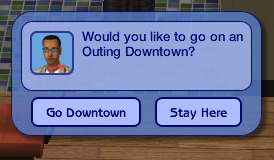


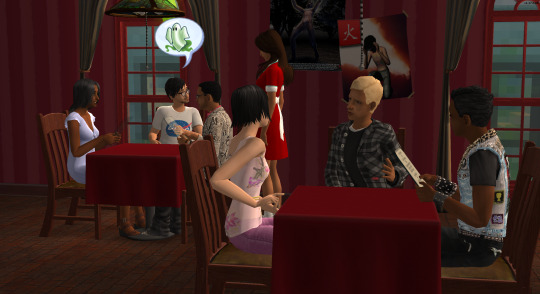
Martin gets another call from Geoffrey, who seems determined to intergrate him into his downtownie friend group. It’s kind of cute actually, I think this is the third time he’s invited him downtown?? He sits Martin down with his fiancee, and introduces him as a best friend. She can’t thank him enoguh for that blender!
25 notes
·
View notes
Text

Of course the opposite doors neighbors Nancy and Geoffrey Landgraab insist on welcoming their new neighbors.

Loki: What a nice surprise. Is that fruit cake? Just like my mother used to make. Isn't that nice Circe?
Circe: Of course, really nice Mrs. Landgraab.

Really nice...
#the sims 4#the sims 4 rotation#beaker household#loki beaker#circe beaker#nancy landgraab#geoffrey landgraab#year 1 spring week 1#y1spw1
3 notes
·
View notes
Text
Townie Makeover #4 | Landgraab Family
It's time for another townie makeover!




Nancy Landgraab, knows how to get what she wants and WILL find a way to get it
Geoffrey Langraab, a kindhearted man whos only negative trait is that he is too nice
Johnny Zest, began pursuing a career in comedy after being diowned by his family. Currently lives in a trailer.
Malcom Langraab, everyone's favorite spoiled rich kid who has a soft spot for his mother
I changed Geoffrey and Nancy's careers back to their sims 3 careers (doctor and politician) cause tbh i hated the whole "She's a criminal and he works in law oh no what's gonna happen!?" thing, I thought it was kinda stupid. I like the idea of Nancy being a politician and the head of the household but also like still a huge dick lol.
It's been a hot minute since I've posted but I think i'm back in action now. Since we're onto Oasis Springs now redoing the Landgraab's was the FIRST thing I had to do. They are way too iconic to be left out of my save.
I think i'm done posting a lot of the stories I have attached to my families unless they're ones I REALLY like. It's too time consuming to write lengthy storie for EVERY character (every character of mine has a basic story but I tend to add a ton of stuff and make them 10x lengthier for tumblr posts). I'll probably still be doing stories for most families but for some of them, I probably won't add them. That or they'll be really short like the last few I posted.
I'll probably end up wriiting Johnny's story in a separate post since he's a pretty interesting character to me
! WCIFS ALLOWED !
#sims4#sims4maxismix#sims4cas#sims4cc#sims4mm#ts4cc#townie makeover#ts4 townies#sims 4 townies#sims 4 townie makeover#sims landgraab#sims 4 landgraab#sims 4 landgraab makeover#landgraab makeover#ts4 langraab makeover#nancy landgraab#malcom landgraab#geoffrey landgraab#johnny zest
16 notes
·
View notes